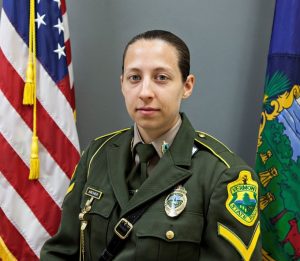Minneapolis Police Chief Medaria Arradondo took the stand in Derek Chauvin trial regarding the death of George Floyd, an African-American. Former police officer Chauvin is facing charges regarding Floyd’s death that happened in May last year.
When individuals record police officers, it does not amount to obstructing police from doing their jobs, even if it is “irritating,” Chief Arradondo testified, according to CNN.
He further testified that Chauvin’s use of the neck restraint on Floyd violated department policy, reported AFP.
He said the move was “not part of our policy, not part of our training, and it is certainly not part of our ethics or values.”
Also read: ‘Please don’t shoot me’: George Floyd’s cry for mercy seen on bodycam footage
Arradondo also told the court that the Minneapolis police department has a policy about people having an “absolute First Amendment right” to record officers interacting and engaging with a community member, CNN report said.
“With the exception that they cannot obstruct the activity of the officers but they absolutely have the right, barring that, to record us performing our duties,” he was quoted by CNN.
He clarified that obstruction means that the concerned person has physically placed themselves in such a position that the officer can no longer do their job.
Arradondo said that it is understandable that a patrol officer may find anyone recording them “irritating”, but it is not considered obstruction.
“Is that obstruction?” prosecutor Steve Schleicher asked.
“It is not,” Arradondo answered.
Also read: Derek Chauvin trial: George Floyd’s girlfriend says they both were addicted to drugs
Many recordings of Floyd’s arrest have come into the forefront since the trial began late last month which show police officers apprehending Floyd from multiple angles. These videos have formed the bedrock of the prosecution’s case against Chauvin.
Jurors have seen multiple cellphone footage recorded by bystanders during Floyd’s initial arrest. Footage also includes Floyd’s final moments, which shocked the nation last year and led to widespread protests against police brutality.
The Police Chief described de-escalation as a set of skills needed to “stabilize a situation.”
“The goal is having a safe and peaceful outcome,” he said.
“We put a lot of time, energy and resources into our training. Training is absolutely, vitally essential to us as a department,” he was quoted as saying by AFP.
He was also asked about the code of ethics followed by Minneapolis police officers and the department’s “professional policing policy.”
Arradondo, who joined the Minneapolis Police Department in 1989 and worked his way up through the ranks, described it as “treating people with dignity and respect,” AFP reported.





